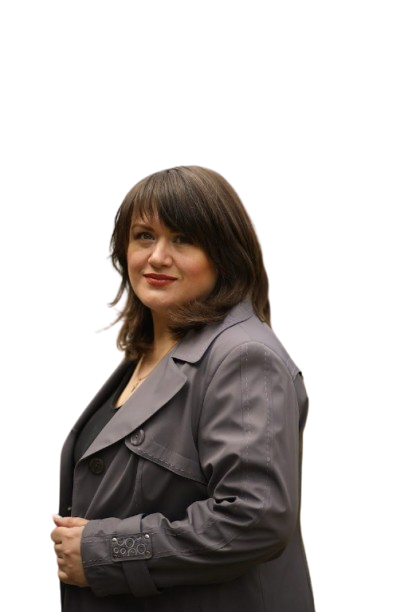Iryna Lukecha is an experienced psychotherapist, psychologist, and trainer with a strong background in international humanitarian work, trauma recovery, and psychosocial support. Since 2022, she has actively contributed to global mental health initiatives through her work with International Medical Relief (USA), where she currently serves as a Team Leader. Iryna also collaborates with refugee support foundations in Poland, working with children, families, and individuals with special needs, including autism and ADHD. Her diverse international training, including certification in Breath-Body-Mind Therapy (USA) and Psychosomatics (Ukraine), underpins her holistic and client-centered approach. She has also coordinated cross-border humanitarian projects supported by the Danish Government and Red Cross.
Psychological Support After Divorce: Restoring Emotional Balance and Building a New Life
Divorce is not just a legal procedure — it’s a deep emotional upheaval that affects every aspect of a person's life. The experience can be especially painful when it involves betrayal, sudden separation, and a loss of trust. In such moments, it’s important not to face the pain alone, but to seek professional support.
Psychologist Iryna Lukacha specializes in working with clients going through divorce. Her approach combines deep therapeutic work, coaching support, and resilience development, helping clients not only deal with emotional pain, but also build a new, fulfilling life.
Client Background
The client contacted Iryna after an unexpected breakup of a marriage that had lasted over 10 years. Her husband moved abroad and informed her of the divorce decision without any prior discussion. Left with two children, she felt lost, anxious, and disconnected. She didn’t know how to explain the situation to relatives or how to move forward.
Stages of Therapeutic Work
1. Acceptance and Emotional Stabilization
- Allowing oneself to experience emotions: anger, sadness, fear, disappointment.
- Psychoeducation on the stages of grief and loss.
- Safe discussion of painful memories and experiences.
- Somatic regulation techniques — breathing, grounding.
2. Restoring Identity and Self-Esteem
- Challenging beliefs like: “I’m not enough”, “I’m unlovable”, “I don’t matter”.
- Analyzing the inner critic and transforming self-devaluation.
- Reconnecting with hobbies, interests, and personal passions.
- Keeping a gratitude and self-worth journal.
3. Rebuilding Life and Setting New Goals
- Structuring a new life: “me and my children”, “me and my work”, “me and my future”.
- Developing a clear vision of the future: where I want to be in one, three, or five years.
- Setting new goals — personal, financial, social.
- Language and professional adaptation if the client is living abroad.
Common Challenges
- Trying to prove something to the ex-partner after the divorce.
- Fear of judgment: “what will people say”.
- Replaying stressful episodes in the mind over and over.
- Fixation on the past instead of moving forward.
Therapy Results
- Emotional stabilization, improved sleep and appetite.
- Increased self-confidence and the feeling of “I can”.
- Better relationships with children — more presence and calmness.
- Emergence of new plans, interests, and motivation to live.
Client Feedback

Frequently Asked Questions
Question
What if the ex-partner continues to manipulate?
Answer
In therapy, we learn to set healthy boundaries, reduce dependence on others’ behavior, and focus on our own emotional balance.
Question
I feel ashamed to go to a psychologist — is that normal?
Answer
Absolutely. It’s a common feeling. But therapy is not a weakness — it’s a sign of self-care.
Question
How long does therapy after divorce last?
Answer
It depends on the person, the length of the marriage, and the nature of the breakup. On average — 2–3 months for basic recovery, and up to 6–12 months for deeper transformation.
Divorce is painful, but not hopeless. With the right psychological support, it can become a starting point for deep personal growth, a rethinking of life values, and the building of new life paths. Therapy with Iryna Lukacha helps clients move through the loss with dignity, develop healthy boundaries, restore trust in themselves and the world, and open up new opportunities in both personal and professional life.
This case shows that even after a great loss, it’s possible to find the strength to start over. A new life is possible — and it can be more conscious, free, and fulfilling than the one before.

































